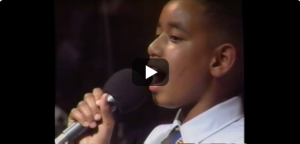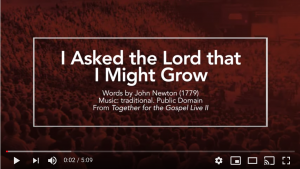Justin Taylor's Blog, page 16
June 18, 2020
New Releases from Crossway

Below is a list of the new and notable resources releasing from Crossway this month (June of 2020). Titles include Growing Together: Taking Mentoring beyond Small Talk and Prayer Requests by Melissa B. Kruger, Stott on the Christian Life: Between Two Worlds by Tim Chester, and the Greek Scripture Journal, New Testament Set.
Stott on the Christian Life: Between Two Worlds
Known for his clear and precise speaking and writing, John Stott, a 20th-century pastor-theologian, shaped evangelicalism’s contemporary understanding of Christianity. This book explores key themes related to the Christian life, such as the development of the mind, expository preaching, balance in the Christian life, and “double listening,” illuminating his enduring influence on the church, evangelism, and missions today. Painting a full picture of the marvelously faithful preacher, this book will encourage a new generation of evangelical Christians to benefit from Stott’s life and teaching.
“Fifty years ago, I became a Christian through reading John Stott’s Basic Christianity. Since then, Stott’s books and sermons have been my closest companions. If we could be allowed but one mentor to grow us into Christlikeness, John Stott would be at the top of my list. I am so very grateful to Tim Chester for summarizing Stott’s theological contributions in a manner that is exceptionally well done. Reading this book was a profoundly moving experience.”
—Derek W. H. Thomas, Senior Minister, First Presbyterian Church, Columbia, South Carolina; author, Let’s Study Revelation and Let’s Study Galatians
Everyday Faithfulness: The Beauty of Ordinary Perseverance in a Demanding World
What does Christian faithfulness look like when life feels unpredictable, hard, or just plain ordinary? We want to follow Jesus, but it’s easy to become more focused on our present situation than on a long view of faithfulness. Working through the unique challenges that come with seasons of waiting, caretaking, suffering, worry, spiritual dryness, and more, Everyday Faithfulness delves into practical ways to build habits into everyday life that will aid in spiritual growth throughout a lifetime.
“Glenna Marshall comes alongside readers with personal testimony, biblical truth, warm encouragement, and an occasional, well-placed elbow when we need it most. Whether you’ve been a Christian for days or decades, this book will equip you to persevere and, in the process, find joy.”
—Megan Hill, author, Praying Together and A Place to Belong; Editor, The Gospel Coalition
Growing Together: Taking Mentoring beyond Small Talk and Prayer Requests
Women in all seasons of life can feel alone, longing for encouragement, guidance, and wisdom from someone who has been there before. They would value the wealth of knowledge and wisdom from other women’s experiences, but often these women don’t feel equipped to offer help. Melissa Kruger offers a springboard for mentoring discussions between mature believers and newer Christians, setting the biblical basis for mentoring from Titus 2 before outlining 11 lessons that guide their time together. Each lesson focuses on a topic such as God’s word, prayer, contentment, temptation, and church, with activities for before, during, and after the mentoring session. Women will grow closer to the Lord as they use these lessons to walk through life together.
“For many of us, the idea of having a mentor is appealing, and the suggestion of being a mentor is intimidating. Through this book, Melissa Kruger helps both the mentor and the mentee know where to start, what to cover, and how to make it work so that the mentoring relationship is a source of joy and growth for everyone involved.”
—Nancy Guthrie, Bible teacher; author, Even Better than Eden: Nine Ways the Bible’s Story Changes Everything about Your Story
Arlo and the Great Big Cover-Up
With easy-to-understand language and engaging images, this book shows children ages 3–7 the freedom that comes through confessing sin rather than trying to cover it up. During naptime, Arlo colors on his bedroom wall and then tries desperately to hide his disobedience from his mother. His efforts fail, but he discovers relief that comes when he finally confesses his sin. In the end, children will learn along with Arlo that although we cannot hide our sin from God, confession opens the door to mercy and reconciliation.
“Real. Relatable. Restorative. I look forward to reading this book to my kids and savoring the conversations that follow. What a wonderful opportunity to talk to kids about God’s amazing grace!”
—Emily Jensen, coauthor, Risen Motherhood: Gospel Hope for Everyday Moments; Cofounder and Content Director, Risen Motherhood
What If I Don’t Feel Like Going to Church?
The most important time to be at church is when you don’t feel like it.
Feelings are complicated and fickle, yet they often reveal what you really want or think. When you don’t feel like going to church, something much deeper may be going on that must be addressed by God’s Spirit, through his word. Gunner Gundersen diagnoses the human heart and offers biblical insight on the importance of being involved in the local church—even when you don’t feel like it.
“Christians are pressed by very real questions. How does Scripture structure a church, order worship, organize ministry, and define biblical leadership? Those are just examples of the questions that are answered clearly, carefully, and winsomely in this new series from 9Marks. I am so thankful for this ministry and for its incredibly healthy and hopeful influence in so many faithful churches. I eagerly commend this series.”
—R. Albert Mohler Jr., President, The Southern Baptist Theological Seminary
ESV Pocket Bible
The most important time to be at church is when you don’t feel like it.
Feelings are complicated and fickle, yet they often reveal what you really want or think. When you don’t feel like going to church, something much deeper may be going on that must be addressed by God’s Spirit, through his word. Gunner Gundersen diagnoses the human heart and offers biblical insight on the importance of being involved in the local church—even when you don’t feel like it.
Greek Scripture Journal, New Testament Set, Paperback
The Greek Scripture Journal: New Testament Set contains the text of The Greek New Testament, Produced at Tyndale House, Cambridge with added space for notes in the margins and between each line, offering a unique way to interact with the New Testament in its original language. This 19-volume set features thin, portable notebooks each containing one or more books of the New Testament and is great for college or seminary students learning Greek, pastors preparing for sermons, or anyone interested in taking notes alongside passages in the original Greek.
June 14, 2020
Shai Linne on Christians Labeling and Categorizing Each Other During This Cultural Moment

Shai Linne—who recently wrote a searing piece for The Gospel Coalition on George Floyd and Me—posted a tweet thread over the weekend:
A thread on labels, categorizing and discourse amongst Christians in our current cultural moment:
1/19
— Shai Linne (@ShaiLinne) June 14, 2020
It was a helpful overview, so I asked if I could reprint it here. He graciously granted permission. I’d encourage you to read (and heed) the whole thing.
These days, the labels are flying around like crazy, often used pejoratively and almost always unhelpful. “SJW” [Social Justice Warrior], “Woke,” “Marxist,” etc. or from another standpoint, “Karen,” “White Evangelical,” “Trumpers”, etc.
I understand the desire to label and categorize people and their positions. It helps us to file them away in our mental folder. Once I stick a label on you, I can easily say “He or she is an ally” or I can say “canceled” and be done with them. I get it.
First thing, there is nothing Christian about “cancelling” anybody. Christians are commanded to “bear with one another and, if one has a complaint against another, forgiving each other; as the Lord has forgiven you, so you also must forgive” (Col. 3:13).
Along with that, it’s become popular to accuse people of “virtue signaling.” It seems to me that by definition, you can’t lob that accusation at someone without judging the motives of a person’s heart. But we’re Christians, so we try not to do that, right?
But I chuckle when I hear “virtue signaling” said about me because if doing/ saying the popular thing is what drove me, I would have started years before now! I’d probably have fewer grey hairs, and a few more fans and former friends still around if I did.
One of the reasons I’ve always been hesitant to engage a lot on social media is because of what I perceive to be its inherent limitations regarding nuance and context which are necessary ingredients for effective communication.
But I understand that social media is a primary form of public discourse in our culture and so I try to steward it and use speech that won’t leave me ashamed at the last day when I have to give account (Matt. 12:36). I don’t always get it right & need God’s grace for when I don’t.
Much of what I’ve said recently may seem new to some people, like I’m caught up in a current wave or something. But I’ve literally said these things for years. It’s on my first album. It’s on the Atonement. Really sprinkled throughout my work, actually.
But it was “sprinkled” intentionally rather than “saturated” because I believed then and still believe that the gospel must be primary. The person/work of Christ is the most important thing I can share with anybody. But I’m not going to ignore important gospel implications.
I’ve tried to be faithful to the conviction of knowing nothing but Christ and Him crucified for close to 20 years of public ministry. So if a single tweet or article can throw me into your “SJW” folder, you might want to examine why it’s so easy for you to do that.
People are complex beings. That’s how God made us. Most people are bigger than the mental folders we place them in. It’s possible for two (or 2,000) things to be true at the same time.
I can wholeheartedly agree with and appreciate things about John MacArthur, or Jonathan Edwards, for example, and at the same time, wholeheartedly disagree with them about other things. And you can fill that blank in with any number of Christian public figures.
Jesus does not fit neatly into our common modern polarizing categories, so why should we expect His followers to? If we’re faithful to the Bible, there should be times where everybody’s toes get stepped on, including our own.
So am I Reformed?
Yes.
Cessationist?
No.
Republican?
No.
Does that make me a Democrat?
No.
Am I “conservative”?
In some ways.
Am I “liberal”?
Liberal about what?
Marriage?
No.
Theology?
No.
Justice for the poor and oppressed?
Yes, depending on what you mean.
Do I hate and grieve abortion?
Yes.
Do I hate and grieve police brutality and racial injustice?
Yes.
Do I see a place for peaceful protest of both things?
Yes.
Do I support rioting and looting?
No.
Do I think proclaiming the gospel in word and deed is the church’s mission?
Yes.
Do I think many reformed churches are severely lacking when it comes to discipling members on issues related to racism and injustice?
Yes.
I could literally go on for hours, and if we sat down for a (socially distanced) cup of tea, there are many things I’m sure we’d be surprised to learn about each other. But none of that would change the fact that Christ is our treasure and the gospel is our only hope.
The benefit of the doubt is something we always want from others but have a hard time extending. That’s because it’s a gift that we’re more prone to give to those we love. So if you love me, I’d really appreciate that gift! And I’ll try to give it back. Thanks.
June 11, 2020
Marco Rubio’s Senate Speech on Racial Disparity in America

On June 9, 2020, Senator Marco Rubio gave a compelling, balanced, and beautiful speech on the Senate Floor. Public Discourse has published the manuscript here, or you can watch the video above.
Here is how he begins:
The murder of Mr. Floyd at the hands of law enforcement officers was an outrageous crime that has shocked this nation.
But it would be a mistake to conclude that the unrest of the last two weeks is only about his death or relations with the police.
At its core, this unrest is about the question of what kind of society we are, and what kind of society we want to be.
A society is a voluntary agreement by people to live together. For a society to thrive, those in it must believe their interests are protected and their voices are heard. But when a substantial number of people in a society come to believe that they are not valued, they do not matter or they are not wanted, then that society will have big problems.
For decades, African Americans have complained that they feel that their voices are ignored, their problems are not addressed, and their lives are not valued. Given our nation’s history with race, this is an uncomfortable grievance, and one many would rather avoid. But like a bad debt that must eventually be paid, it is a grievance we can no longer ignore.
Like before, the latest unrest has given rise to voices arguing that the foundations of our republic are built on systemic racism and must therefore be brought down. The only difference is that this time claims like these don’t just come from the fringes of our politics.
Like before, we also have voices who say that today race is a factor only in individual cases, distinct from our society at large.
Both of these views are wrong.
You can read the whole thing here, or watch above.
June 10, 2020
An Atheist Critiques Postmodern Christianity and the Instrumentalizing of God

Freddie DeBoer recently quoted a section in Pete Wehner’s Atlantic piece on social psychologist Jonathan Haidt:
Haidt has been invited to speak to various Christian organizations and universities and has “found a point of commonality.” “I’m always up front that I’m an atheist,” he explained, “but I say to them: I agree with you that there is a God-shaped hole in everyone’s heart.” That line reflects the sentiments expressed by Saint Augustine, and Blaise Pascal in his Pensées. “You and I disagree on how it got there. I’m a naturalist; I believe that we evolved to be religious. A part of being human is believing in gods and worshipping and having a sense of the sacred. And I think we have a need, we have a hole in our heart, I believe it got there by evolution, it got there naturally, and it is effectively filled by God for most people. It can be filled by other things. But I think it needs to be filled by something—and if you leave it empty [people] don’t just feel an emptiness. A society that has no sense of the sacred is one in which you’ll have a lot of anomie, normlessness, loneliness, hopelessness.”
DeBoer, who is also an atheist, comments:
Belief in belief is belief in delusion – worse, in other people’s delusion. It is one thing to argue that religion is true or is not true. It is another to say “it isn’t, incidentally, but go on pretending, it’s good for you.” In the inherent condescension of that attitude I see something worse than Christopher Hitchens ever unleashed against the faithful. Whatever Christianity is, it is not worship of the God-shaped hole. Whatever Judaism is, it is not the worship of the God-shaped hole. Whatever Islam is, it is not the worship of the God-shaped hole. And in fact if you take the precepts of those religions at all seriously, you can see praying to the God-shaped hole for what it is: idolatry.
He goes on to apply this to “the whole Weird Catholic/Trad Cath/Twitter Catholicism thing.”
Young people feel that their lives are bereft of meaning and go looking for it in the church. In that they are little different from worshipers from centuries past. But there’s an extra layer, a knowingness to the trad cath tendency that seems to me to jeopardize the whole project. If you know you are pursuing faith not because you authentically believe in the stories the faith traditions tell, but rather because you believe that the trappings of religion will make you feel better, the journey will be an aimless and likely short one. Religious practice often finds its fullest flower when the fight to maintain faith is the hardest. But who would go through those dark nights of the soul to maintain fidelity to an abstract conception of community, to a God who isn’t there? I do not see how consequentialist religion can be called religion at all. Postmodern Christianity undermines the very foundations of faithfulness by instrumentalizing God, turning God into a means and not an end. But everything I know about Abrahamic religion tells me that God is meant to be the ultimate end.
It is an interesting day when a Marxist atheist is reminding professing Christians, in essence, that the chief end of man is to glorify God, that God is the summum bonum, that our trust should be in God and not belief, and that none of it should matter if it is not true.
C. S. Lewis poked at the idea of faith as a means in The Screwtape Letters, as the senior demon advised the junior demon on how best to distract the young believer:
Let him begin by treating the Patriotism or the Pacifism as a part of his religion. Then let him, under the influence of partisan spirit, come to regard it as the most important part. Then quietly and gradually nurse him on to the stage at which the religion becomes merely part of the ‘cause’, in which Christianity is valued chiefly because of the excellent arguments it can produce in favour of the British war-effort or of Pacifism. The attitude which you want to guard against is that in which temporal affairs are treated primarily as material for obedience. Once you have made the World an end, and faith a means, you have almost won your man, and it makes very little difference what kind of worldly end he is pursuing. Provided that meetings, pamphlets, policies, movements, causes, and crusades, matter more to him than prayers and sacraments and charity, he is ours—and the more ‘religious’ (on those terms) the more securely ours. I could show you a pretty cageful down here.
Of course it’s easier for me—an evangelical Protestant—to jump on a critique of “the whole Weird Catholic/Trad Cath/Twitter Catholicism.” But I can’t help thinking of this old haunting quote from J. I. Packer comparing the Puritans with today’s evangelicals and to ask myself some hard questions:
Whereas to the Puritans communion with God was a great thing, to evangelicals today it is a comparatively small thing.
The Puritans were concerned about communion with God in a way that we are not.
The measure of our unconcern is the little that we say about it.
When Christians meet, they talk to each other about their Christian work and Christian interests, their Christian acquaintances, the state of the churches, and the problems of theology—but rarely of their daily experience of God.
Modern Christian books and magazines contain much about Christian doctrine, Christian standards, problems of Christian conduct, techniques of Christian service—but little about the inner realities of fellowship with God.
Our sermons contain much sound doctrine—but little relating to the converse between the soul and the Saviour.
We do not spend much time, alone or together, in dwelling on the wonder of the fact that God and sinners have communion at all; no, we just take that for granted, and give our minds to other matters.
Thus we make it plain that communion with God is a small thing to us.
But how different were the Puritans! The whole aim of their ‘practical and experimental’ preaching and writing was to explore the reaches of the doctrine and practice of man’s communion with God.
Let’s recommit ourselves to see God himself as our greatest good and highest end.
“One thing have I asked of the LORD, that will I seek after: that I may dwell in the house of the LORD all the days of my life, to gaze upon the beauty of the LORD and to inquire in his temple.” (Ps. 27:4)
“And we all, with unveiled face, beholding the glory of the Lord, are being transformed into the same image from one degree of glory to another. For this comes from the Lord who is the Spirit. . . . For God, who said, “Let light shine out of darkness,” has shone in our hearts to give the light of the knowledge of the glory of God in the face of Jesus Christ.” (2 Cor. 3:18; 4:6)
[HT: Samuel James]
June 8, 2020
Song of the Day: God Moves in a Mysterious Way

God moves in a mysterious way
His wonders to perform;
He plants His footsteps in the sea
And rides upon the storm.
Deep in unfathomable mines
Of never failing skill
He treasures up His bright designs
And works His sov’reign will.
Ye fearful saints, fresh courage take;
The clouds ye so much dread
Are big with mercy and shall break
In blessings on your head.
Judge not the Lord by feeble sense,
But trust Him for His grace;
Behind a frowning providence
He hides a smiling face.
His purposes will ripen fast,
Unfolding every hour;
The bud may have a bitter taste,
But sweet will be the flow’r.
Blind unbelief is sure to err
And scan His work in vain;
God is His own interpreter,
And He will make it plain.
William Cowper, “God Moves in a Mysterious Way” (1774)
For a biography of the author of this hymn, see John Piper’s beautiful address.
June 7, 2020
Song of the Day: His Eye Is on the Sparrow

Why should I feel discouraged?
And why should the shadows come?
Why should my heart feel lonely
And long for heavenly home
When Jesus is my portion?
And my constant friend is He
You know, his eye is on the little sparrow
And I know he cares for you and me
His eye is on the little sparrow
And I know God is watching over you and me
I sing because my soul is a happy
I sing because I’m free
For His eye, it is on the little sparrow
And I know He’s watching over you and me
“His Eye Is on the Sparrow” (1905) by lyricist Civilla D. Martin (lyrics) and Charles H. Gabrie (music)
“I will instruct you and teach you in the way you should go;
I will counsel you with my eye upon you.” (Ps. 32:8)
“Look at the birds of the air: they neither sow nor reap nor gather into barns, and yet your heavenly Father feeds them. Are you not of more value than they?” (Matt. 6:26)
“Are not two sparrows sold for a penny?1 And not one of them will fall to the ground apart from your Father. But even the hairs of your head are all numbered. Fear not, therefore; you are of more value than many sparrows.” (Matt. 10:29–31)
June 5, 2020
Song of the Day: A Beautiful Hymn by John Newton

One of John Newton’s most beautiful hymns, published in the Olney collection under the heading, “Prayer Answered by Crosses.”
1 I ask’d the Lord, that I might grow
In faith, and love, and ev’ry grace,
Might more of his salvation know,
And seek more earnestly his face.
2 ‘Twas he who taught me thus to pray,
And he, I trust, has answer’d pray’r;
But it has been in such a way,
As almost drove me to despair.
3 I hop’d that in some favour’d hour,
At once he’d answer my request:
And by his love’s constraining pow’r,
Subdue my sins, and give me rest.
4 Instead of this, he made me feel
The hidden evils of my heart;
And let the angry pow’rs of hell
Assault my soul in ev’ry part.
5 Yea more, with his own hand he seem’d
Intent to aggravate my woe;
Cross’d all the fair designs I schem’d,
Blasted my gourds, and laid me low.
6 Lord, why is this, I trembling cry’d,
Wilt thou pursue thy worm to death?
“’Tis in this way,” the Lord reply’d,
“I answer pray’r for grace and faith.
7 These inward trials I employ,
From self and pride to set thee free;
And break thy schemes of earthly joy,
That thou mayst seek thy all in me.”
How Should We Relate to Evil? Eight Things to Do and Four Things Never to Do

John Piper, Spectacular Sins (Crossway, 2008), 50–51.
Eight Things to Do with Evil
On the one hand:
1. Expect evil.
“Do not be surprised at the fiery trial when it comes upon you to test you, as though something strange were happening to you” (1 Pet. 4:12).
2. Endure evil.
“Love bears all thing, believes all things, hopes all things, endures all things” (1 Cor. 13:7; cf. Mark 13:13).
3. Give thanks for the refining effect of evil that comes against you.
“Give thanks always and for everything to God the Father in the name of our Lord Jesus Christ” (Eph. 5:20; cf. 1 Thess. 5:18).
“We rejoice in our sufferings, knowing that suffering produces endurance . . .” (Rom. 5:3–5).
4. Hate evil.
“Let love be genuine. Abhor what is evil; hold fast to what is good” (Rom. 12:9).
5. Pray for escape from evil.
“Lead us not into temptation, but deliver us from evil” (Matt. 6:13).
6. Expose evil.
“Take no part in the unfruitful works of darkness, but instead expose them” (Eph. 5:11).
7. Overcome evil with good.
“Do not be overcome by evil, but overcome evil with good” (Rom. 12:21).
8. Resist evil.
“Resist the devil and he will flee from you” (Jas. 4:7).
Four Things Never to Do with Evil
But on the other hand:
1. Never despair that this evil world is out of God’s control.
“[He] works all things according to the counsel of his will” (Eph. 1:11).
2. Never give in to the sense that because of seemingly random evil, life is absurd and meaningless.
“How unsearchable are his judgments and how inscrutable his ways! . . . For from him and through him and to him are all things. To him be glory forever” (Rom. 11:33, 36).
3. Never yield to the thought that God sins or is ever unjust or unrighteous in the way he governs the universe.
“The Lord is righteous in all his ways” (Ps. 145:17).
4. Never doubt that God is totally for you in Christ.
If you trust him with your life, you are in Christ. Never doubt that all the evil that befalls you—even if it takes your life—is God’s loving, purifying, saving, fatherly discipline. It is not an expression of his punishment in wrath. That wrath fell on Jesus Christ our substitute (Gal. 3:13; Rom. 8:3). Only mercy comes to us from God, not wrath, if we are his children through faith in Jesus.
“The Lord disciplines the one he loves, and chastises every son whom he receives” (Heb. 12:6).
June 4, 2020
“A Thinking Person’s Checklist,” by Alan Jacobs

Alan Jacobs, How to Think: A Survival Guide for a World at Odds:
When faced with provocation to respond to what someone has said, give it five minutes. Take a walk, or weed the garden, or chop some vegetables. Get your body involved: your body knows the rhythms to live by, and if your mind falls into your body’s rhythm, you’ll have a better chance of thinking.
Value learning over debating. Don’t “talk for victory.”
As best you can, online and off, avoid the people who fan flames.
Remember that you don’t have to respond to what everyone else is responding to in order to signal your virtue and right-mindedness.
If you do have to respond to what everyone else is responding to in order to signal your virtue and right-mindedness, or else lose your status in your community, then you should realize that it’s not a community but rather an Inner Ring.
Gravitate as best you can, in every way you can, toward people who seem to value genuine community and can handle disagreement with equanimity.
Seek out the best and fairest-minded of people whose views you disagree with. Listen to them for a time without responding. Whatever they say, think it over.
Patiently, and as honestly as you can, assess your repugnances.
Sometimes the “ick factor” is telling; sometimes it’s a distraction from what matters.
Beware of metaphors and myths that do too much heavy cognitive lifting; notice what your “terministic screens” are directing your attention to—and what they’re directing your attention away from; look closely for hidden metaphors and beware the power of myth.
Try to describe others’ positions in the language that they use, without indulging in in-other-wordsing.
Be brave.
Read the whole book for an explanation and elaboration of each point.
You can also listen to Collin Hansen interview Professor Jacobs on the TGC podcast.
May 30, 2020
Song of the Day: Hold Me Jesus

Well, sometimes my life just don’t make sense at all
When the mountains look so big,
And my faith just seems so small
So hold me Jesus,
Cause I’m shaking like a leaf
You have been King of my glory
Won’t You be my Prince of Peace
And I wake up in the night and feel the dark
It’s so hot inside my soul
I swear there must be blisters on my heart
So hold me Jesus,
Cause I’m shaking like a leaf
You have been King of my glory
Won’t You be my Prince of Peace
Surrender don’t come natural to me
I’d rather fight you for something I don’t really want
Than to take what you give that I need
And I’ve beat my head against so many walls
Now I’m falling down, I’m falling on my knees
And the Salvation Army band is playing this hymn
And Your grace rings out so deep
It makes my resistance seem so thin
So hold me Jesus,
Cause I’m shaking like a leaf
You have been King of my glory
Won’t You be my Prince of Peace
You have been King of my glory
Won’t You be my Prince of Peace
Richard Mullins, Hold Me Jesus lyrics © Capitol Christian Music Group
Justin Taylor's Blog
- Justin Taylor's profile
- 44 followers










